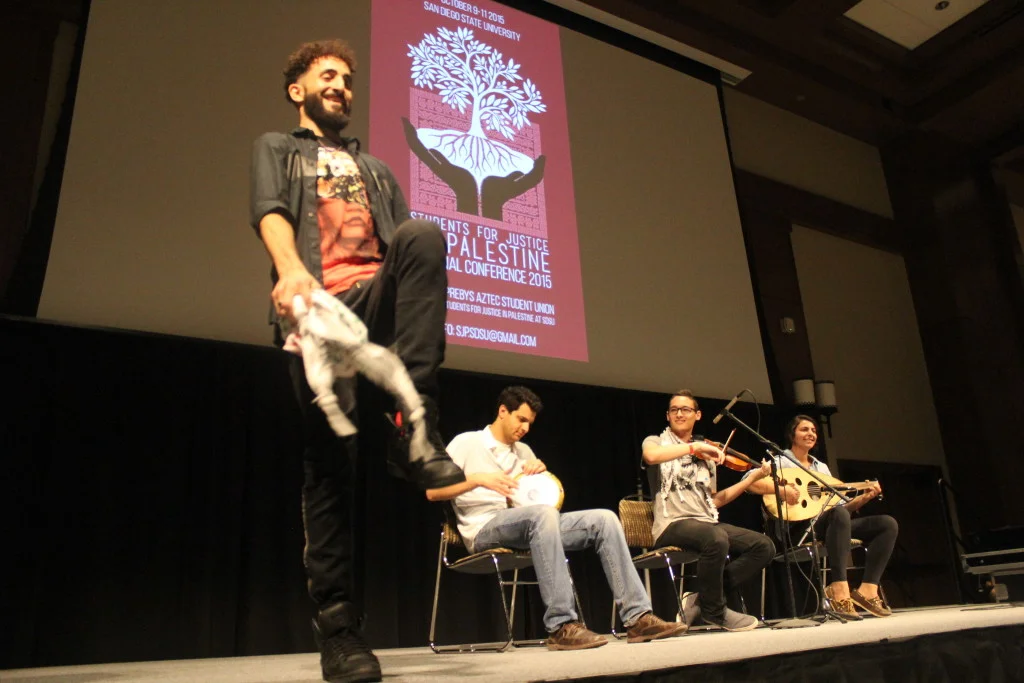Rasmea’s defense team makes a strong argument at her appeal
Judges Alice Batchelder, Karen Moore, and John Rogers will consider arguments from Rasmea Odeh’s defense team, which were presented at her appeal hearing and are expected to publish their decision within one to five months.
Odeh’s lawyers and the government prosecutors were each allowed 15 minutes to present their oral arguments before the panel of judges on Wednesday. The Palestinian community organizer and icon appeared before the panel of three judges at the U.S. Court of Appeals for the 6th Circuit in Cincinnati, Ohio.
Her lead attorney Michael Deutsch told the panel she was denied the right to a fair trial, as a result of being unable to provide evidence proving that she suffers from Post-Traumatic Stress Disorder (PTSD). Deutsch emphasized the relevance of Dr. Mary Fabri’s testimony, which stated that Odeh’s diagnosis of chronic PTSD heavily influenced her answers to questions on her naturalization documents.
During the pre-trial, Judge Gershwin Drain labeled Odeh’s “crime” as specific intent, thus allowing her defense team to provide evidence that she suffered from PTSD. However, after pressure from the prosecution, Judge Drain revoked his original statement, and denied her defense team to provide any evidence of rape and torture.
Deutsch remained firm and argued that Odeh was denied the right to a fair trial, specifically for the fact that she was denied an opportunity to present her testimony to the jury, in addition to being denied the opportunity to provide the testimony of a mental health expert.
Jonathan Tukel spoke after Deutsch. Immediately, Tukel was interrupted by Judge John Rogers, who continued to ask questions regarding the prosecution’s seemingly undeveloped argument.
Judges asked questions trying to understand the prosecution’s argument that Odeh knowingly lied on her immigration documents. On multiple occasions, Tukel failed to answer a simple question: “Why would anyone lie except to procure naturalization?” These questions were intended to gage the prosecution’s position and figure out what evidence the U.S had to support that the defendant knowingly provided falsified information.
During the hearing, the judges acknowledged Odeh’s state of mind could have potentially influenced her answers to the questions on her immigration documents.
In 1969, Odeh was arrested with 500 other Palestinians in connection to an alleged bombing outside a supermarket in Jerusalem. Odeh was held for 45 days without a lawyer. She was then subject to 25 days of sexual and psychological torture until she was forced into signing a confession, she has publicly stated. Israeli military courts convict 99.7% of Palestinians that appear before them. Odeh served 10 years of her sentence before she was released in a prisoner exchange, after which she moved to Jordan and studied law.
Odeh resettled in the United States in 1994 to take care of her ill father. In 2004, she became a naturalized U.S. citizen. Two years later, she moved to Chicago, where she works as the Associate Director of the Arab American Action Network (AAAN) and is the founder of the Arab Women’s Committee.
Two years ago, Rasmea Odeh was arrested outside of her home for alleged unlawful procurement of naturalization. She was targeted by the Department of Homeland Security as a result of an FBI-led campaign in 2010 that targeted and subpoenaed over 20 prominent anti-war and international solidarity activists.
After her trial last November, Odeh was found guilty of fraudulently obtaining U.S. citizenship by failing to disclose information on her immigration and naturalization documents regarding her conviction in an Israeli military court over forty years ago.
Odeh was found guilty last march. As a result of community response to her arrest, she was released on bond.
However, Odeh was sentenced to 12-18 months in U.S. Federal prison, fined $1,000, followed by deportation to Jordan and revocation of her citizenship, pending the results of her appeal.
On Tuesday night, buses full of Odeh’s supporters left from Chicago to Cincinnati. Approximately 100 of her supporters rallied outside of the courthouse before her hearing. The courtroom was full of community organizers, activists, and friends of Odeh, all of whom were eager to hear her defense team’s oral argument.
After the hearing, Michael Deutsch joined Odeh and her supporters for a short rally outside of the courthouse, at which he along with prominent activists from the Committee to Stop FBI Repression, Black Lives Matter in Cincinnati, Chicago Alliance Against Racist and Political Repression, and others spoke in support of Odeh.
At the end of the rally, Rasmea who has devoted her life to organizing toward liberation and justice for her homeland thanked her supporters and her defense team. She closed with uplifting words:
“I am so lucky to have my lawyers and all of you here to support me. We stand together to fight for justice, to fight for freedom…You give me the strength to stand up and face all the challenges…Whatever the result will be, I feel I am winning with the strength you give to me and to my country as a Palestinian…My problem is the Palestinian problem. I ask you to continue to support the Palestinian cause.”




